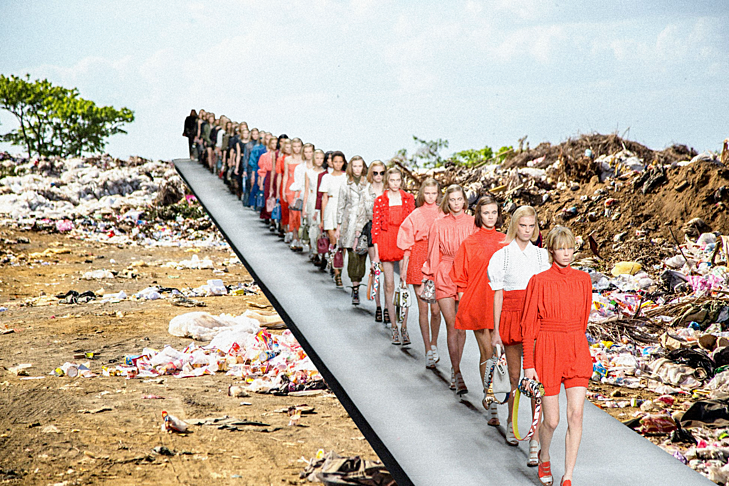It presents a legislative package to promote the circular and sustainable economy.
The European Commission aims to oblige member states to increase the reuse and recycling of textiles. Its proposal will have to be negotiated with the European Parliament and Member States. The purpose is to have the final legislation in place before the European Parliament elections in June 2024, which will mark the change of the EU legislative cycle. The aim is to «green textiles«, the fourth sector with the greatest environmental and climate impact after food, housing, and mobility. The objective being to «boost investment in reuse and recycling» instead of landfill and incineration. It also seeks to ensure «the application of the polluter pays principle«, as the European Commissioner for the Environment, Virginijus Sinkevicius, told a press conference.
Mandatory and harmonised extended producer responsibility
78% of textiles used in the EU are not separated, reused and recycled, but end up in landfills or incinerators. And 5.2 million tonnes of clothing and footwear are thrown away each year in the EU, or about 12 kilos per inhabitant.
Although EU Member States are already obliged to set up separate collections of textile waste from 1 January 2025. Meaning that the Commission now wants to go further down this path and is proposing a mandatory and harmonised «Extended Producer Responsibility» for all textiles in all Member States.
Such schemes, which are already used for other products such as packaging or electronic batteries, oblige producers to cover the cost of waste management. This creates incentives for them to reduce waste and increase circularity by designing products from the outset with a focus on reuse and recycling at the end of their useful life.
In the textile ecosystem, in order to determine how much they will have to pay, an adjusted classification will be established according to the environmental performance of the fabric under the principle of «eco-modulation». Such a tariff could make a T-shirt, for example, about 12 cents more expensive, although «the proposal does not set the level of the contribution, but the legal framework». This measure «will create cost-saving opportunities for citizens who choose vintage and timeless fashion over fast fashion,» Sinkevicius explained.
Brussels, which will also ban discarded fabrics from being sent to third countries without equivalent environmental rules, hopes that such a system will encourage research and innovation in textile materials as part of an ambitious green agenda for the sector.
Green textiles
The EU adopted a sustainable textiles strategy in March 2022, forword to a series of rules aimed at aligning the sector with the legal obligation to reduce CO2 emissions by 55% by 2030 compared to 1990 levels, with a target of zero emissions by 2050.
This roadmap has been rolled out in various pieces of legislation, the most emblematic of which is the Ecodesign Directive, which is designed for all sectors, but focuses particularly on textiles, identified as a priority by public opinion.
Currently under negotiation in the Council and the European Parliament, the Ecodesign Directive seeks to ensure that products are designed with circularity in mind. Meaning that they are durable, repairable, safe and recyclable. Adding up, also provides for a ban on the destruction of unsold textiles and garments. The EU certification called EcoLabel will provide guarantees that products comply with the requirements, giving the reliability not only of being a sustainable product but also of respecting environmental, human, social, labour and animal welfare values throughout the supply chain. In addition, the European Commission launched in March a proposal to put an end to «ecoposture» in misleading or false labelling and the Executive is expected to make public in the coming weeks an initiative to limit the release of microplastics into the environment over the full life cycle of products.

